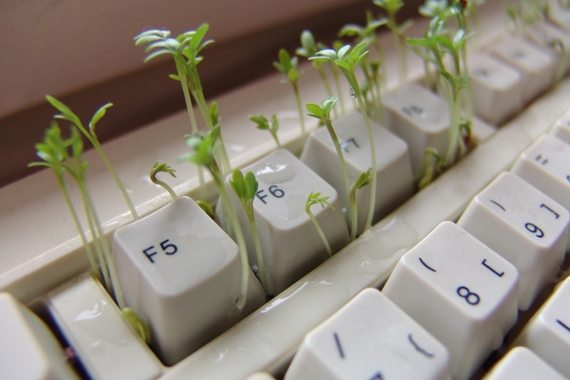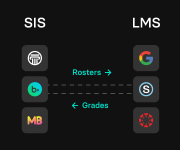|
|
|
|
 
|
Top News
 |
| (Pixabay) |
AI literacy requires students to do more than prompt chatbots, and computer science education can give them an understanding of the data, algorithms and models that underpin AI, writes Jake Baskin of the Computer Science Teachers Association. Professional development, learning communities and curriculum support for computer science educators can help them guide students through evolving concepts and technologies, Baskin notes.
|
|
|
 | Stop Double Entry Between Your SIS and LMS
Flow automatically syncs classes, rosters, assignments, and grades between your Student Information System and Learning Management System. No more manual updates or duplicate work. Learn more about Flow. |
|---|
| |
|
|
 
|
Digital Learning
|
AI tools can help teachers efficiently personalize instruction for diverse learners, writes elementary school tech coach Debbie Tannenbaum, describing how to incorporate the technology into the Universal Design for Learning framework. Tannenbaum details how educators can quickly tailor activities and prompts to foster engagement, representation and action.
|
|
|
An Atlanta middle school has launched a learning lab with robotics stations, 3D printers, and virtual and augmented reality tools for hands-on, technology-driven education. The lab at Sylvan Hills Middle School is part of an effort to close the digital divide and prepare students for a rapidly evolving global market.
|
|
| |
 |
| (Ilkercelik/Getty Images) |
Clinical psychiatrist Jonathan Slater argues that AI chatbots should not be considered safe companions for children and teens. Slater cites research showing that 64% of kids ages 9 to 17 have used AI chatbots, with many viewing them as friends. This phenomenon is contributing to the stunted verbal and social skills he sees in many adolescents and young adults, according to Slater.
"Socializing is hard. It's anxiety-provoking. There's fear of rejection. But that struggle is exactly what builds the social muscles necessary for success in all areas of life," Slater writes.
|
|
|
 | The Future of Retail: What's Coming in 2026
AI personalization and seamless customer experiences defined 2025, but the retail landscape is about to shift again. Join us on November 5th for a fast-paced webinar where industry experts reveal the top trends and technologies shaping 2026. Discover how to stay ahead, boost productivity, and deliver next-level shopping experiences. Register now! |
|---|
| |
|
|
 
|
Free eBooks and Resources
|
 
|
Managing Budgets
|
The US education technology sector is facing significant challenges due to tariff policies introduced by the Trump administration, with tariffs on imported technology, including laptops and data center equipment, increasing costs for universities. While some electronics are exempt, overall hardware prices have risen sharply, with some laptops and tablets expected to see price increases of up to 46%. This has led schools to adjust procurement strategies, with some shifting to multiyear agreements to manage costs. Edtech companies are responding by innovating supply chains, raising prices and offering creative financing options.
|
|
|
|
Last Byte
| |
 |
| (Stuart Walmsley/Getty Images) |
Researchers at Ohio State University have found that edible mushrooms like shiitake can function as organic memory chips, potentially replacing traditional silicon-based components. When connected to circuits, mushrooms store and process information, mimicking neural activity with low power consumption. The findings were published in PLOS One.
| Full Story: Earth (10/26) |
|
|
|
|
|
SmartBreak: Question Of The Day
| Which retailer started out by opening a dry goods store on Sixth Avenue and 14th Street in NYC on Oct. 28, 1858? |
| | | | | |
